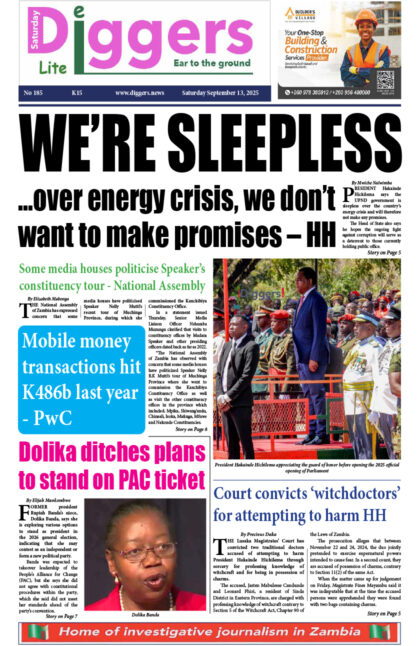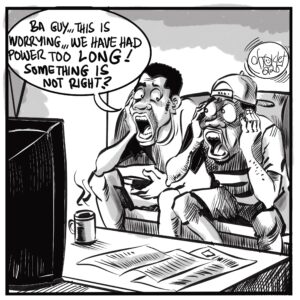Fuel prices are expected to rise sharply in view of the kwacha’s weak performance against major currency convertibles and increased crude oil prices on the international market, says NKC African Economics.
And NKC, the SA-based think tank, says the Zambian government’s debt servicing costs are expected to rapidly escalate by over 24 per cent this year as the country’s external debt position is forecast to hit nearly 80 per cent of Gross Domestic Product (GDP).
Meanwhile, NKC has projected that Zambia’s slashed economic growth projections this year will mean that household disposable incomes will stagnate.
In a country update released last week, NKC predicted that a fuel price increment was imminent in view of the weak kwacha’s performance against major currency convertibles, which had been compounded by rising crude oil prices on the international market.
The local currency depreciated sharply against major currency convertibles in a space of six weeks between April 1 and May 17, losing value by nearly 15 per cent, triggered by dwindling dollar supply from the mining sector.
On the other hand, crude oil prices steadily rose over the two-quarter period of 2019 from US $62 per barrel in early February to US $74 per barrel by mid-May.
The Energy Regulation Board (ERB) last hiked fuel prices on October 2, 2018, before marginally reducing them on February 28, this year.
“Looking ahead, the inflation outlook deteriorated considerably in response to cost-push factors, notably a much weaker harvest outlook, kwacha erosion and recovery in international crude prices. We anticipate that domestic fuel prices will need to be adjusted markedly higher before mid-year both due to international price developments as well as exchange rate pass-through,” the report, jointly-authored by NKC’s senior financial economist Irmgard Erasmus and senior political analyst Gary van Staden, stated.
“Zambia uses the cost-plus fuel pricing model. We anticipate more overt pressure from this month onward despite some seasonal factors acting as reprieve.”
And it stated that the Zambian government’s debt servicing costs are expected to rapidly escalate by over 24 per cent this year, while the country’s external debt position is forecast to hit nearly 80 per cent of GDP.
Government spent nearly US $760 million in meeting Zambia’s external debt servicing commitments last year, up from around US $706 million in 2017, compared to just US $63 million in 2013.
“Alarmingly, public external debt servicing costs jumped by nearly 50 per cent to US $760 million and are forecast to rise by an additional 24.4 per cent this year. Our revised forecast sees the external debt position at 77.5 per cent of GDP at end-2019 on account of new loan disbursements and further contraction of exporters’ and suppliers’ credit, as well as adverse kwacha movements,” it added.
Zambia’s international gross reserves position is equally expected to continue to dwindle further in view of government’s need to service the mounting external debt.
The country’s gross reserves position continued to drop to below US $1.5 billion, a historic 10-year low, triggered by government’s huge external debt servicing commitments, Ministry of Finance data shows.
“Weak revenue mobilisation implies that, absent of additional external debt contraction on commercial terms, the foreign reserve buffer will be run down further to meet external obligations to risk a balance of payments event,” NKC stated.
“In turn, liquidity risk has increased both on an annual and quarterly basis due to a sharper-than-expected drawdown of the foreign reserve buffer. Export receipts will remain inadequate to meet external obligations, requiring a further drawdown in the foreign reserve. Zambia continues to face a high risk of debt distress: we attach a high probability to upward revisions of the public debt burden and negative balance sheet effects.”
Meanwhile, Zambia’s slashed economic growth projections this year will mean that household disposable incomes will stagnate, according to NKC’s forecast.
“In light of the sharp downward adjustment in our growth forecast, we no longer anticipate a recovery in household disposable incomes and business revenues to markedly improve the private sector’s ability to meet debt obligations,” stated NKC.
NKC African Economics is a South African-based think tank owned by Oxford Economics.
























